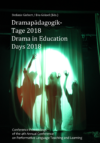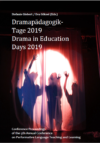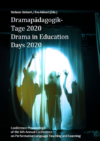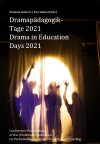Real engagement in a virtual environment: Training soft skills online
University and professional training courses are fostering soft skills more and more (Charoensap-Kelly et al.2016). Drama has proven to be a powerful tool for that. However, what happened when lockdowns forced workshops to move online? Can performative training be as effective online?
Countless performers and performative trainers were forced to stop working or reinvent themselves to find a way to apply their training techniques and performances online (s. ITI Newsletters with interesting suggestions, and personal training experience with my local theatre association in Padua, Cambiscena).
This workshop is based on a recent training experience for an Interactive Learning Laboratory to train export managers – ALL EM – organised by SELISI (School of Economics, Languages and Entrepreneurships, Campus Treviso, Ca’ Foscari University), fully carried out online. In my module regarding soft skills “Competenze trasversali attraverso il teatro d’impresa” I adapted improvisation exercises to a virtual environment, working on team building, creativity, flexibility, critical thinking, and other soft skills of an Export Manager.
In the workshop participants will experiment and play with some of the exercises used during the workshop, and there will be an opportunity to share ideas on how to adapt them to different training contexts and situations.
Bibliography
Abdoli Sejzi, Abbas & Aris, Baharuddin & Pey Yuh, Chan. (2013). Important Soft Skills for University Students in 21th Century. Cecco, Serena & Masiero, Andrea. 2019. “Improving Language and Interpreting Skills: A Teaching Experience” in Scenario, XIII(1).
Associazione Culturale Cambiscena, www.cambiscena.it.
Bendazzoli, Claudio. 2009. “Theatre and Creativity in Interpreter Training”. In L’esperienza teatrale nella formazione dei futuri mediatori linguistici e culturali, edited by Fernández García, M.I., Zucchiatti, M. & M.G. Biscu, Bologna: BUP, 153-164.
Cecco, Serena & Masiero, Andrea. 2019. “Improving Language and Interpreting Skills: A Teaching Experience” in Scenario, XIII(1).
Cecco, Serena. 2019. “Interpret – AZIONE – Milano Workshop”, in Learning Designer, https://v.gd/swnDn6, [last accessed 10th February 2019].
Charoensap-Kelly, Piyawan & Broussard Lauren & Lindsly, Mallory & Troy, Megan (2026). “Evaluation of Soft Skills Training Programme”. In Sage Journal Vol 79(2). DOI: 10.1177/2329490615602090
Cho, Jinhyun & Roger, Peter. 2010. “Improving Interpreting Performance through Theatrical Training.” The Interpreter and the Translator Trainer, 4:2, 151-171, DOI: 10.1080/13556509.2010.10798802.
Grandi, Gina L. (2021). Theatre as a Method: Performance Creation through Action Research. In SAGE Journal. doi.org/10.1177/1476750321993530.
ITI, Internationa Theatre Institute. https://www.iti-worldwide.org/
Johnstone, Keith. (1999) 2015. Impro for Storytellers, Abingdon: Routledge, Rakuten Kobo edition.
Masiero, Andrea 2019. “Interpret – AZIONE: il teatro al servizio degli interpreti”, in LinkedIn, https://www.linkedin.com/pulse/interpret-azione-andrea-masiero/, [last accessed on 10th February].
VanVuuren, Petro Jansen & Freisleben, Christina F. (2020). How to Catch a Flying Pig: Facilitating Embodiment Works in Online Rooms. In RiDE vol 25(2). doi.org/10.1080/13569783.2020.1730169.
Serena Cecco is an interpreters’ trainer, interpreter and translator, and language consultant. She has been a lecturer of dialogue interpreting (English-Italian) at Ca’ Foscari University, Campus Treviso since 2012. She is interested in exploring innovative training methods, with a special focus on performative teaching. Recently, she has designed and carried out a soft skills workshop for an Active Learning Laboratory to train Export Mangers, which will form the basis of this workshop. She has been an improviser since 2010.

 2018
2018 2019
2019 2020
2020 2021
2021